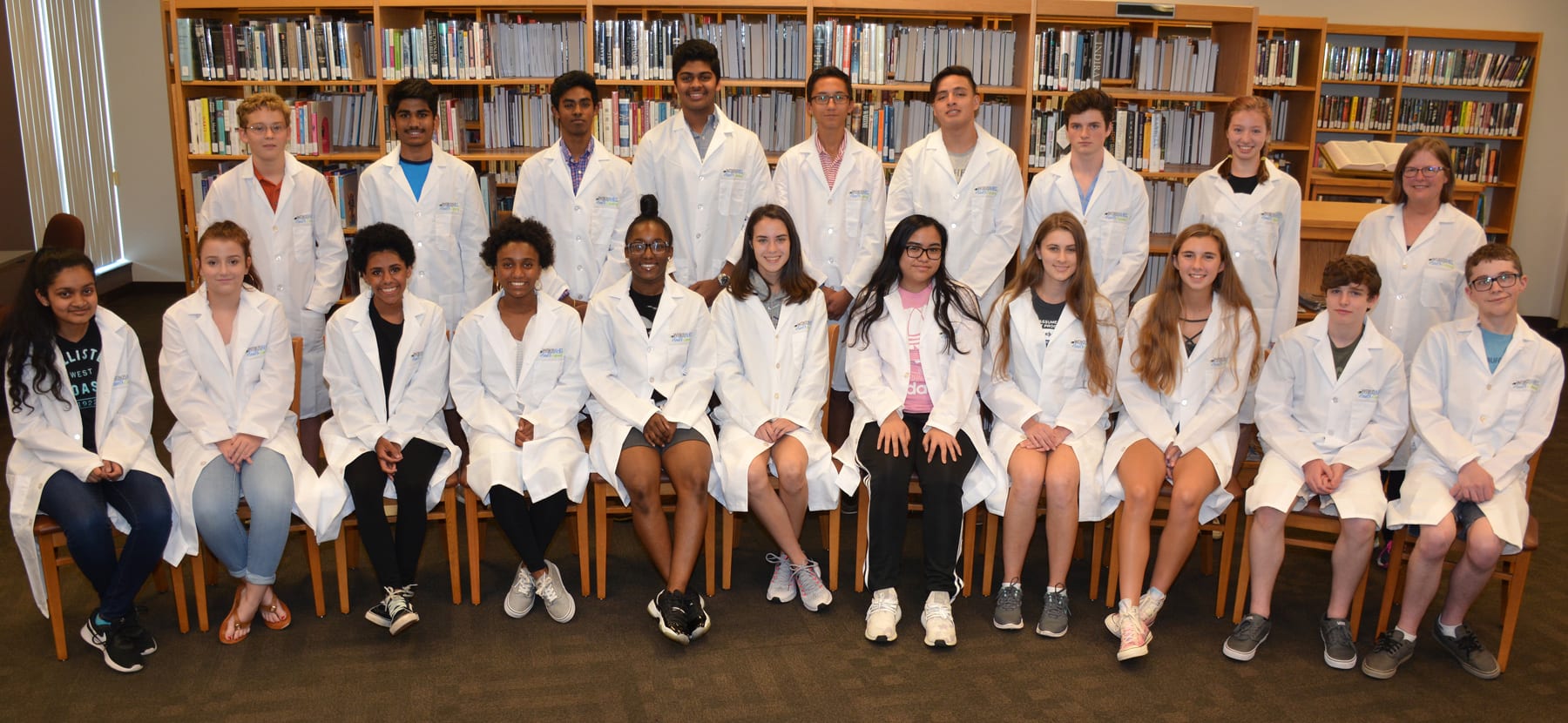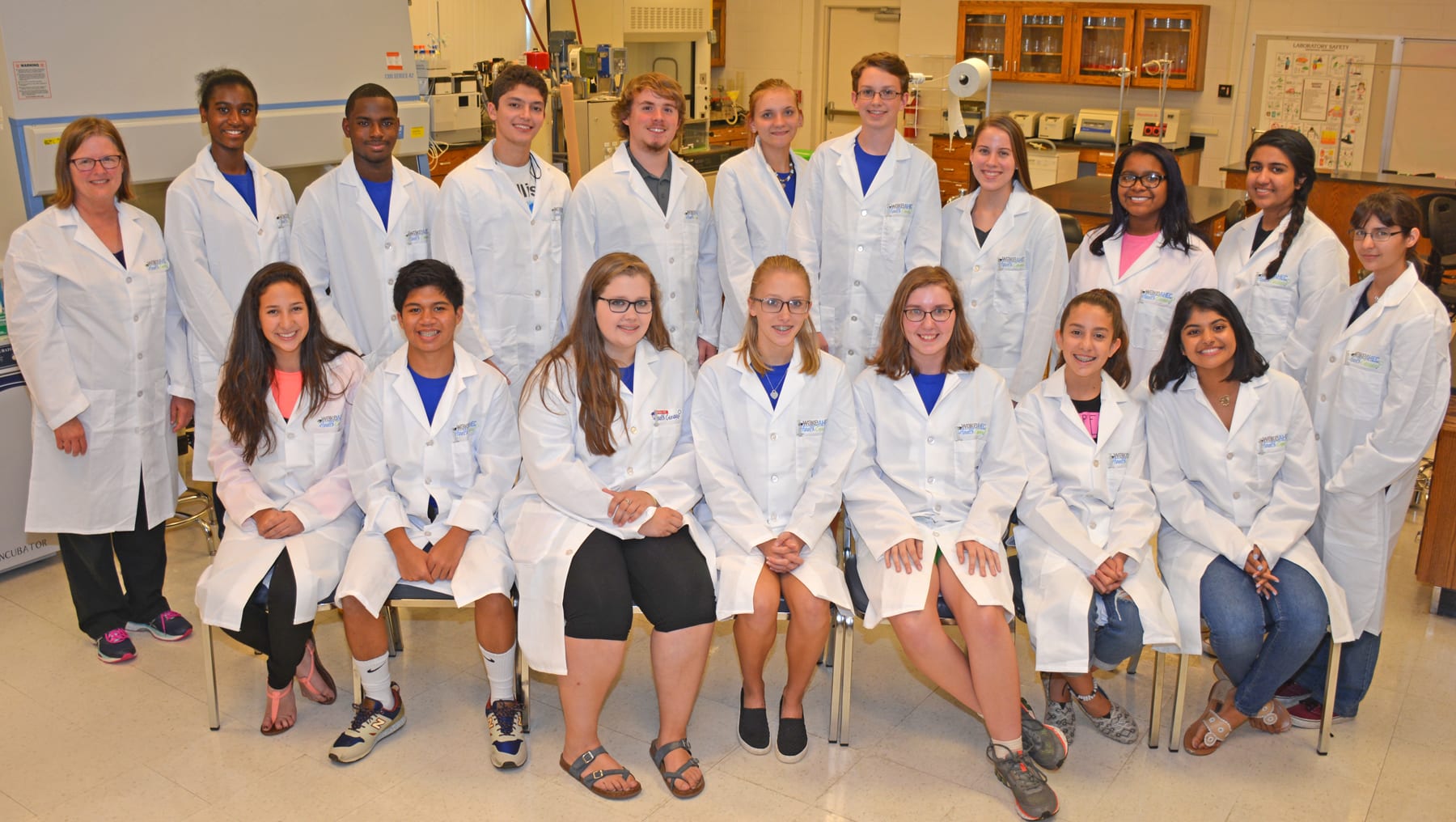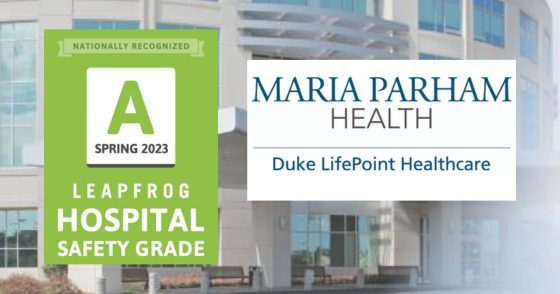High school students from across the region recently attended “Mini-Medical School” camps organized by the Wake Area Health Education Center (AHEC) in partnership with Vance-Granville Community College. The camp was held first in June at VGCC’s South Campus, located between Butner and Creedmoor, and in July at the college’s Franklin County Campus, just outside Louisburg. Between the two locations, 44 students completed the program.
This was the college’s fourth summer partnering with Wake AHEC on the Mini-Medical School, which is an intensive, week-long day camp that uses computational science (computer simulation) and hands-on activities to study key aspects of medicine.
Students learned about topics that included anatomy and physiology, bioprocessing, biochemistry, pharmacology, cardiology, epidemiology, medical genetics and genomics. The course was taught primarily by Becky Brady, a registered nurse and chemical engineer. VGCC Bioprocess Technology program head/instructor Dr. Tara Hamilton also taught a session at each camp.
Faculty members from VGCC programs that prepare students for health-related careers — including Nursing, Medical Assisting, Radiography, Pharmacy Technology and Human Services Technology — gave students information about academic pathways and employment prospects and conducted hands-on activities on the last day of the camp.
Students not only had a chance to learn about careers and hone their science skills, but they also became certified in CPR and Youth Mental Health First Aid during the course of the program.
The students who completed the school at South Campus included Connor Frutos of Apex Friendship High School; Nicole Newton of Bluestone High in Skipwith, Virginia; Alexis Watt of Bunn High School; Jaimes Veneziale of Cardinal Gibbons High School in Raleigh; Joshua Bringas-Garcia and Victoria Shaw, both of Cary High School; Ian Foley of East Chapel Hill High School; Aaryaan Shaik of Enloe High School in Raleigh; Jace Johnson and Colson Teal, both of Falls Lake Academy in Creedmoor; Abigail Thomas of Franklin Academy in Wake Forest; Harrison Gibson of Franklinton High School; William Stevenson of Grace Christian School in Raleigh; Daniel Asanov, Megan Gregg and Melissa Hierman, all of Green Hope High School in Cary; Kiara Glydell Gamayot of Knightdale High School; Beth Yakaboski of Middle Creek High School in Apex; Sridhanueshwar Devanand of Panther Creek High School in Cary; Hayley Smith of Person High School; Sampath Petchetti of Raleigh Charter High School; Zorriah Raynor of Southeast Raleigh Magnet High School; Meredith Elliott and Emily Wright, both of South Granville High School; Eshaa Vijay of Triangle Math & Science Academy in Cary; Phuan Deshazo of Voyager Academy in Durham; and Andrew Keeton of J.F. Webb High School in Oxford.

Those who completed the program at Franklin Campus included Hunter English of Bunn High School; Bethany Melega of Chapel Hill High School; Craig Geter of East Wake High School; Maia Sichitiu and Ayaon Yadav, both of Enloe High School in Raleigh; Robyn Hamilton, Jarrod Hubbell, Amanda Murray and Sabrina Smith, all of Franklinton High School; Juan Castro and Emely Pacheco, both of Friendship Christian School in Raleigh; Ivan Alvarez of Heritage High School in Wake Forest; Patricia Beasley of Longleaf School of the Arts in Raleigh; Madeline Stallsmith of Oxford Preparatory School; Anika Palekar of Panther Creek High School in Cary; Yanni-Taylor Shaw of Ravenscroft School in Raleigh; and Dalia Leggard of Wake STEM Early College High School.

Wake AHEC serves nine counties in central North Carolina from its office in Raleigh: Durham, Franklin, Granville, Johnston, Lee, Person, Vance, Wake, and Warren counties. AHECs are located throughout North Carolina and are affiliated with the North Carolina Area Health Education Centers Program at the University of North Carolina – Chapel Hill School of Medicine. The mission of the statewide AHEC Program is to meet the state’s health and health workforce needs. NC AHEC provides educational programs and services that bridge academic institutions and communities to improve the health of the people of North Carolina with a focus on underserved populations.
–VGCC–















